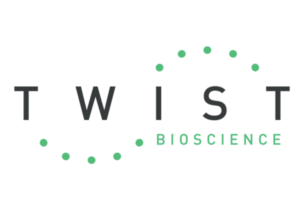OBSERV Pilot Event – Archived
 Obfuscating Biological Sequences to Ethically Reveal Vulnerabilities
Obfuscating Biological Sequences to Ethically Reveal Vulnerabilities
Do you want to put your engineering biology expertise toward a good cause and help keep DNA sequences that could be misused from falling into the wrong hands? Join us for OBSERV to help strengthen sequence screening systems and compete for your share of $5000 in total prizes!
Prizes are generously sponsored by Twist Bioscience.
Registration closes April 29 Register here
Overview
For more information, please check out our Event Guidelines or contact the organizers at observ@ebrc.org.
What: OBSERV is a multi-week virtual challenge designed to identify and mitigate gaps in DNA sequence screening systems by leveraging the expertise of small teams of students and postdocs. OBSERV was developed over the course of several months in close consultation with subject matter experts throughout the engineering biology community, DNA synthesis companies, biotechnology industry, and government, including the FBI WMD Directorate.
Why: OBSERV aims to build and promote a security-conscious community within engineering biology by enabling early-career researchers to collaborate with commercial gene synthesis providers and biosecurity experts. We believe that students and postdocs bring creativity and fresh perspectives that can uniquely enable them to identify unknown gaps in current sequence screening methodologies. The broader biotechnology community can utilize these findings to improve current screening practices, mitigate and safeguard against existing threats to global security, and inform future governance of gene synthesis technologies.
Who: To register, you must
- Be a student or postdoc at a university, non-profit research institution, or National/U.S. Government Lab located within the U.S., AND
- Be a member of the EBRC Student and Postdoc Association OR be a member of an EBRC-affiliated lab, AND
- Have attended or registered for an upcoming Department of Homeland Security-sponsored virtual Malice Analysis workshop, AND
- Attend a virtual Kickoff Event that summarizes event rules and expectations
Registrants will compete in teams of three. Pre-formed teams are welcome and individuals who register without a team will be assigned to a team by the event organizers. This event is capped at 20 teams. Spaces will be filled on a first-come, first-served basis.
Competition Logistics
Malice Analysis
All participants will be required to attend a virtual Malice Analysis workshop prior to participating in OBSERV. This workshop will provide historical context and risk assessment tools related to the intersection of security and the life sciences. Workshop participants will also receive a certificate of completion that can be noted on their CV. Upcoming virtual workshops (click the link to register):
All workshops are open to all OBSERV registrants and will be conducted entirely virtually. You do not have to be affiliated with the host university listed here to attend. Please contact the organizers at observ@ebrc.org if you are interested in participating in OBSERV but will not be able to attend any of the listed workshops. If you have already completed a Malice Analysis workshop previously through EBRC you will not need to attend a second workshop.
Kickoff Event
The virtual Kickoff Event will be a required event on May 3rd, 7:00-8:30pm ET / 4:00-5:30pm PT, and will serve as the formal start of the competition. Event organizers will communicate an overview of the competition format and rules, information about sequence screening algorithms, and policies surrounding information hazards. Participants who are unable to attend the Kickoff Event but who would still like to participate in the competition should contact the event organizers at observ@ebrc.org.
Competition Tracks
OBSERV seeks to identify existing gaps in current sequence screening approaches and to share this knowledge with gene synthesis providers and government partners so that swift action can be taken to mitigate them. We are pursuing two avenues for mitigating existing security gaps:
Track 1: Obfuscation of regulated sequences
In Track 1, participants will attempt to identify strategies that would enable an individual to exploit existing gaps in current sequence screening systems to obtain a sequence that is currently subject to regulation (for more information about regulated sequences, see the Event Guidelines). Participants will attempt to obfuscate regulated sequences (e.g., through DNA design strategies) so that they are not recognized by sequence screening algorithms. This track will enable gene synthesis providers to incorporate awareness of these obfuscation strategies into their screening algorithms to prevent existing gaps from being exploited by bad actors.
Track 2: Identification of sequences of concern that are not yet regulated
In Track 2, participants will attempt to identify existing sequences of concern that fall outside the boundaries of current regulations. This track will enable gene synthesis providers to incorporate these sequences into their routine screening procedures to prevent their misuse. Teams may choose to participate in one or both tracks. In Track 1, teams will have three opportunities over the course of 3 weeks to design obfuscation strategies and to submit sequences based on those strategies to gene synthesis companies, who will return results indicating whether the sequences passed screening or raised flags. These multiple rounds will enable teams to probe the limits of screening systems and iterate on their designs. Track 2 sequences are designed to fall outside the boundaries of current sequence screening and regulation, and as a result, are not expected to raise flags. Thus Track 2 sequences will only be submitted once to the event organizers during the final submission round and, with some possible exceptions, will not be subjected to screening.
Submission Format and Judging Criteria
At the end of the event, teams will submit write-ups of each obfuscation strategy that they attempt (for Track 1) or for each set of related sequences of concern that they identify (for Track 2). These write-ups will be reviewed by a panel of judges comprised of subject matter experts within the broader engineering biology and biosecurity communities. The judges will assess each write-up based on their success at evading detection by gene synthesis companies, feasibility, creativity, and societal impact. Bonus points will be awarded to teams who suggest changes to the sequence screening process that can mitigate any security gaps that they identify. Judges will evaluate Track 1 and Track 2 submissions separately and choose one winning team and one runner-up team for each track.
Mitigation
The results of this exercise will be communicated to participating gene synthesis companies, the International Gene Synthesis Consortium, and government partners so that immediate action can be taken to mitigate any security gaps that are uncovered through this event. We also plan to publish a high-level summary of findings from the event in an academic forum, withholding any details that pose possible security concerns. We will work with journal editors, government partners, and subject matter experts to ensure that any published materials do not pose security risks.
Prizes
Twist Bioscience has generously provided $5000 in prizes to the top teams in each track!
- Winning teams — $1500
- Runners up — $1000
Ready to participate?
Register here
Registration closes April 29th.
Organizers and Sponsors
The OBSERV competition was developed over the course of several months in collaboration with subject matter experts throughout the engineering biology community, DNA synthesis companies, biotechnology industry, and U.S. government national security agencies, including the FBI WMD Directorate.
Participating Organizations
Event Organizers
This event is led by the EBRC Student and Postdoc Association and Security Working Group. Graduate students Kathryn Brink (Rice University) and Bridget Luckie (University of California, Berkeley) conceived and created OBSERV. They can be contacted at observ@ebrc.org.
Schedule (2021)
May 3 — Kickoff event
May 10 — Round 1 sequence submissions due (Track 1)
May 13 — Round 1 sequence results returned to participants (Track 1)
May 17 — Round 2 sequence submissions due (Track 1)
May 20 — Round 2 sequence results returned to participants (Track 1)
May 24 — Round 3 sequence submissions due (Track 1)
May 27 — Round 3 sequence results returned to participants (Track 1)
May 31 — Write-ups and accompanying sequences due to event organizers (Track 1 & 2)
June 1 — Event organizers send write-ups and sequences to judges
June 15 — Judges return scoring results
June 18 — Winners announced
 Obfuscating Biological Sequences to Ethically Reveal Vulnerabilities
Obfuscating Biological Sequences to Ethically Reveal Vulnerabilities Obfuscating Biological Sequences to Ethically Reveal Vulnerabilities
Obfuscating Biological Sequences to Ethically Reveal Vulnerabilities




